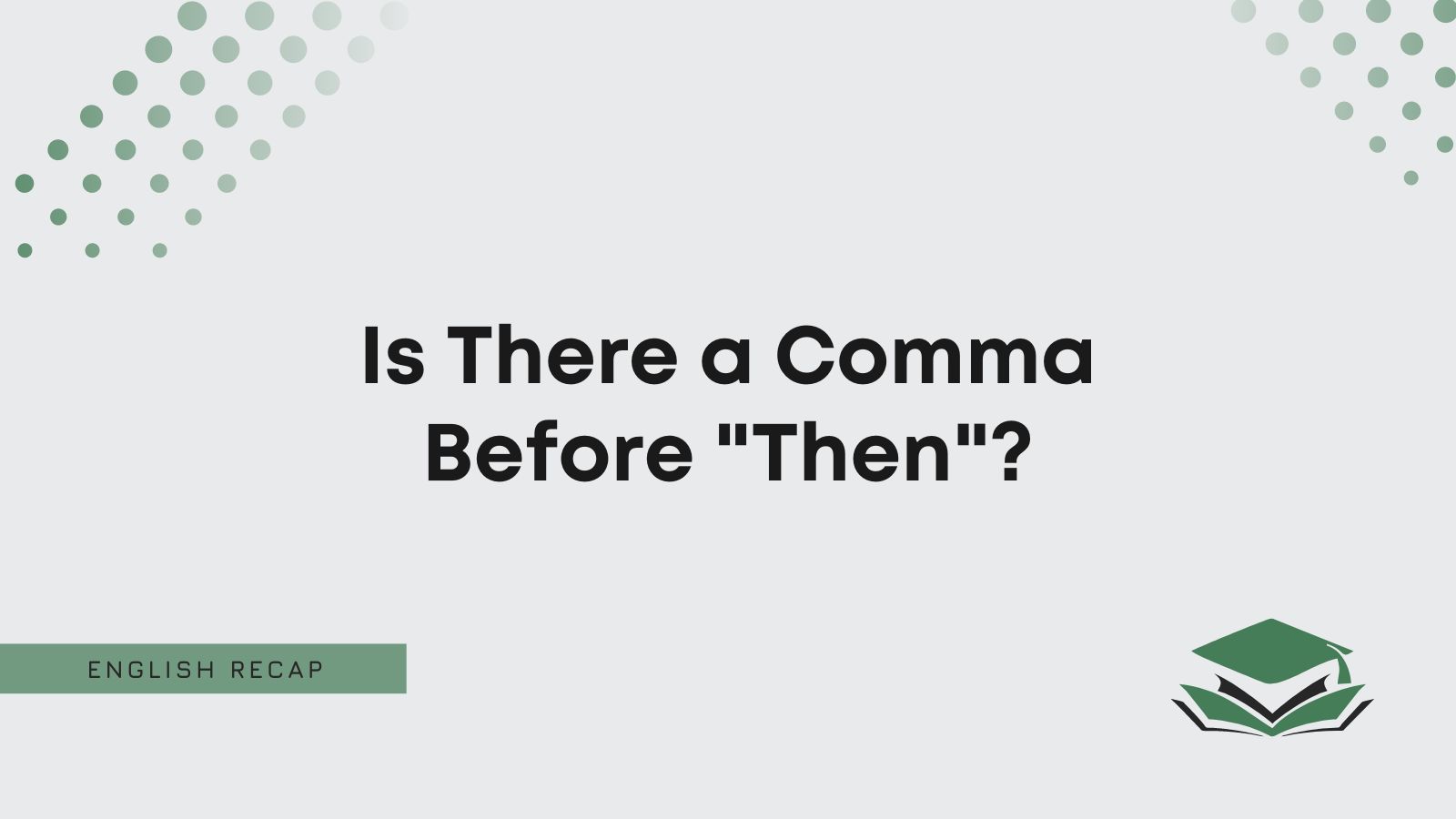Rule 1: Use a comma before “then” when it is the first word of a result clause in a conditional sentence.
- Correct: If you go outside, then you will get wet.
- Incorrect: If you go outside then you will get wet.
Rule 2: Use a comma before “then” when you use it to mean “and then.”
- Correct: We went out for a meal, then we went for a glass of wine.
- Incorrect: We went out for a meal then we went for a glass of wine.
Rule 3: Don’t use a comma before “then” when it divides an independent and dependent clause.
- Correct: I arrived at the house then saw it was the wrong house.
- Incorrect: I arrived at the house, then saw it was the wrong house.
Would you like to discover more about how you can use commas with “then”? If so, we encourage you to read through the rest of the article to see some more example sentences.
When to Use a Comma Before “Then”
When deciding whether you need a comma before “then,” you should refer to Rules 1 and 2.
Rule 1: Use a comma before “then” when it appears in a conditional sentence as the first word in a result clause.
In these sentences, the word “then” shows the consequence of the “if” clause.
- If you won the lottery, then we would be able to retire.
- If you hadn’t been late, then we wouldn’t have this problem.
Rule 2: Use a comma before “then” when you use it to mean the same as “and then.”
Many people feel it is incorrect to omit the “and,” but it is common. When you use “then” in this way, you should put a comma before it the same way you would put a comma before “and.”
The clauses that “then” connects in the middle of a sentence must be independent, i.e., they must be able to stand alone and make sense.
- He told me he loved me, then he got down on one knee and proposed.
- She took me around the office to meet everyone, then I attended an induction meeting at 4 pm.
When to Avoid a Comma Before “Then”
Rule 3 explains when to avoid a comma before “then.”
Rule 3: You shouldn’t use a comma before “then” when it divides independent and dependent clauses.
In these sentences, you want the dependent clause to be connected without punctuation to improve the clarity of the sentence.
- We were looking at the lion then it suddenly jumped against the cage.
- I started the test then it was over before I knew it.
Conclusion
You should always put a comma before “then” when it is in a conditional sentence. E.g., “If it’s hot, then I’ll stay in.” Also, when it connects two independent clauses, use a comma. However, do not use a comma when “then” connects a dependent clause to an independent clause.

